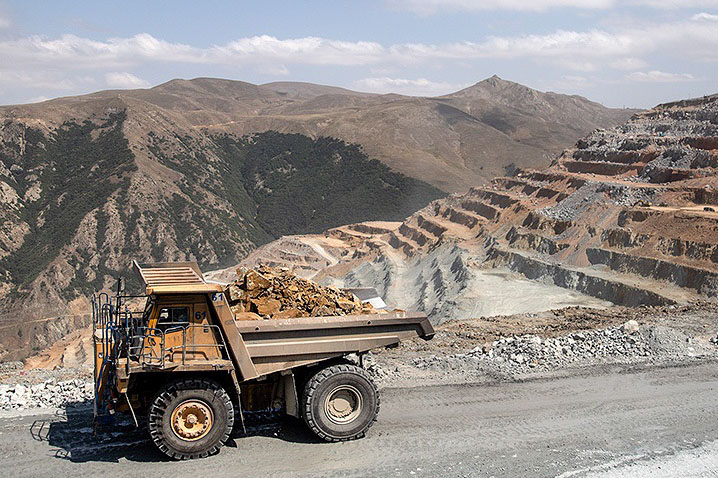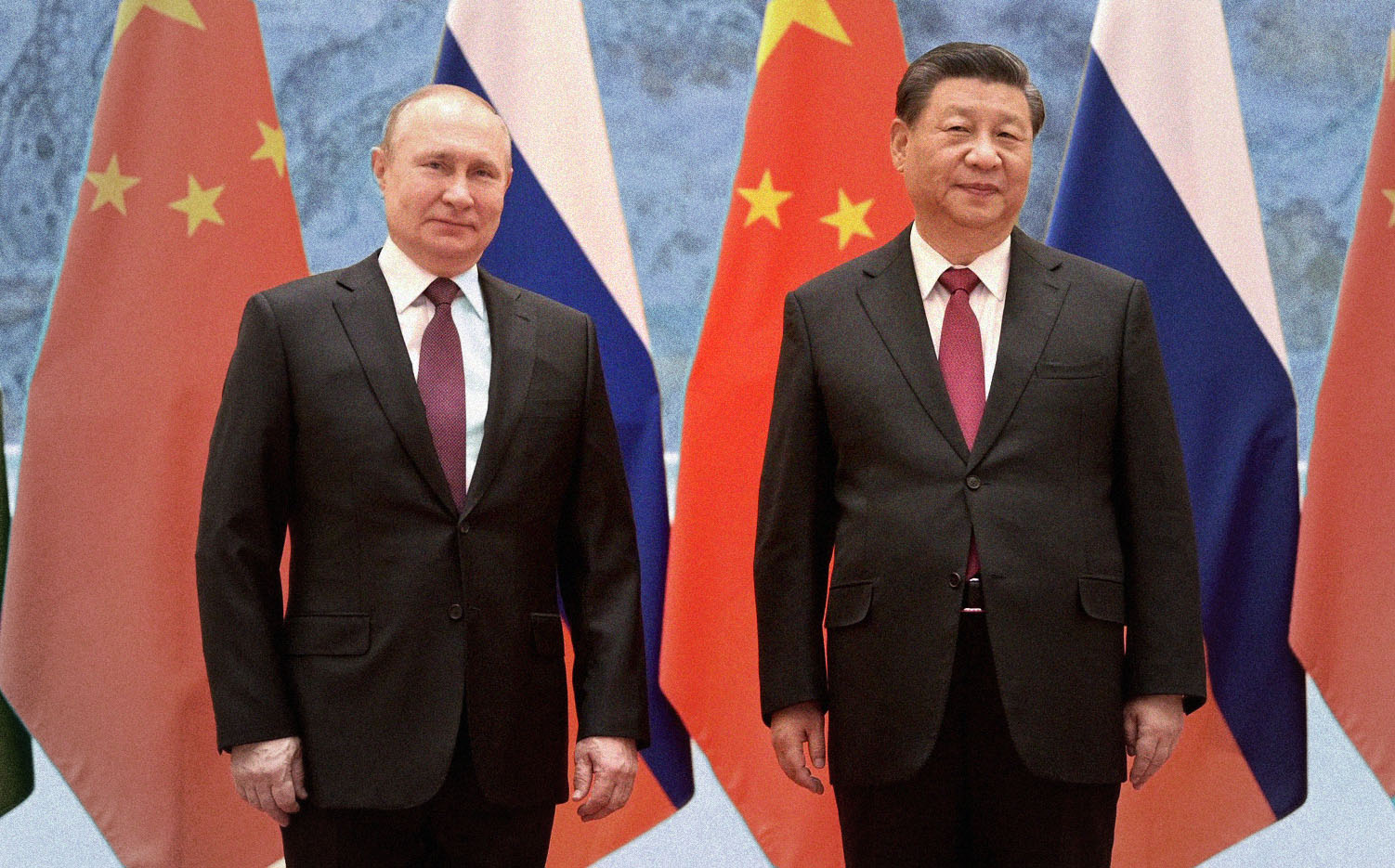
[Originally published on marxist.com]
We publish here an eyewitness account of the conditions faced by workers at one of the most important copper and cobalt producers in the Democratic Republic of the Congo. This account was sent to us by Maurice Odingo, the general secretary of the Comité de Kinshasa. It gives a crystal-clear view of the horrific conditions faced by Congolese miners in general, and the character of China’s involvement in Africa today.
Tenke Fungurume Mining (TFM) is not simply a mining company. It is one of the modern bastions of imperialist exploitation in the Democratic Republic of Congo. Based in the province of Lualaba, this company specialises in the extraction of copper and cobalt, two minerals that are crucial for the global technology industry, particularly in the green energy transition.
Behind the rhetoric of ‘development’ and ‘international partnership’, TFM operates in reality as a foreign economic enclave, completely disconnected from the local population. The company is 80 percent owned by China Molybdenum Co. Ltd, a mostly privately-owned Chinese corporation. Within its fortified walls, everything is organised to maximise the production of wealth for the benefit of Chinese multinationals, while keeping Congolese workers in poverty and dependence.
TFM acts as an autonomous industrial colony: the Congolese are the servants, the Chinese the lords. Language, food, access to healthcare, fundamental rights… everything is segregated on a brutal, racist basis. The company is an economic micro-dictatorship protected by the passivity and even complicity of the national authorities.
My entry into industrial hell
My name is Maurice Odingo. Like millions of young Congolese, I finished my studies in a country ravaged by unemployment and abandoned by its own government. Simply looking for a decent living, I was recruited by TFM as a factory operator at the 30K processing plant, one of the central hubs of the industrial complex.
At first, everything seemed well organised: induction, technical training, supervision. We were presented with a company that seemed to be a model of rigour and stability. But soon, once the trial period was over and the annual contract signed, the mask came off. The true face of Chinese capitalism was revealed. We were faced with:
- Constant and inhumane pressure on productivity,
- Racist authoritarianism and cultural contempt,
- Systematic dehumanisation of workers.
The objective was clear: maximise production and minimise human costs.
Living like modern slaves in our own country
For £308 a month, this was our daily life at TFM:
- 12-hour days with no adequate breaks,
- A dry loaf of bread and a small bottle of juice for the whole day,
- No access to the canteens reserved for Chinese workers,
- Precarious housing, poor health and hygiene,
- Bosses and managers who treat us like disposable equipment.
Meanwhile, the Chinese earned up to $5,000 per month, received three hot meals per day, medical leave every six months, and worked in much safer conditions.
The contrast was stark, humiliating and unbearable. And all this was carried out with the active complicity of the Congolese state, which prefers to protect foreign investment rather than defend its own citizens.
Trade unionism banned, rights trampled, law flouted
One day, I went to see representatives of the Democratic Labour Confederation (CDT) to understand why we were not allowed to join a trade union. I was told coldly: “Fixed-term contracts do not give access to trade unions.” This is a blatant lie, which is contrary to the Congolese Labour Code and international conventions. No law prohibits a worker on a fixed-term contract from joining a trade union. This response clearly shows their deliberate intention to prevent any collective organisation.
At TFM:
- Meetings are prohibited without authorisation.
- No independent worker representation is tolerated.
- The unions that are present are infiltrated, controlled or co-opted.
Management applies a policy of ‘preventive repression’, relying on compliant Congolese foremen to stamp out any spark of revolt.
A deadly system
‘Safety’ at work is an illusion for Congolese workers. Every day, we were exposed to highly toxic chemicals (acids, solvents). Protective equipment was inadequate or non-existent, and safety procedures were only applied to Chinese workers.
I saw a colleague die of poisoning. When I reported the situation, the Chinese supervisor replied, without emotion: “No mabo, kogoli fulufulu” (No problem, there are plenty more to replace him).
This sentence sums up the cynicism of colonial capitalism: the life of a Congolese worker is worth nothing in the eyes of his exploiters.
The birth of a revolutionary activist
Faced with such injustice, I refused to remain silent. I began talking to my colleagues, raising their awareness of their rights and teaching them the basics of class struggle and socialism. Small discussion groups sprang up. Solidarity was born.
But repression quickly followed. I was denounced by opportunistic colleagues, harassed and framed by my superiors, and summoned to be threatened by human resources.
In the end, I had to leave the company. But I came out stronger than ever, determined to devote my life to the struggle for the liberation of the Congolese proletariat.
Our future is not to be found in the factories of multinationals, but in socialist revolution
What I experienced is what thousands of workers experience every day in the Congo. This country, rich in resources, is being bled dry by imperialism – yesterday western, today Chinese. Poverty is not inevitable. It is the product of a system: colonial capitalism, which cannot be reformed, only overthrown.
We must:
- Build a revolutionary organisation of the working class,
- Politically educate the masses, outside the bourgeois parties and corrupt trade unions,
- Unite with workers around the world, in an internationalist spirit.
We have two options. Either we continue to live on our knees, exploited in our own country, or we rise up, organise and overthrow the system. As Karl Marx said, “The proletarians have nothing to lose but their chains. They have a world to win.”
Appendix: voices of Congolese workers in Chinese mines
“We work from 6 am to 6 pm, sometimes longer. For food, we get a piece of dry bread and a bag of water. The Chinese eat hot meals in the shade. We work outside like dogs.” – Paul Shomba, 31, worker in Kolwezi
“The Chinese supervisor insulted a colleague in broken Lingala: ‘Nzoba! Na beti yo!’ We didn’t say anything. If you speak, you lose your contract.” – Jeans Kasongo, 28, mechanic in Fungurume
“I earn $350. A Chinese driver earns ten times more for less work. We are given the longest and most dangerous routes.” – Héritier, 38, truck driver
“They have everything: masks, boots, gloves. We sometimes don’t even have gloves. I’ve handled acids with my bare hands. My skin is burned.” – Jonathan Ilunga, 26, factory worker
“No union. No representatives. When I asked why we weren’t treated like the Chinese, I was told, ‘There are a thousand others to replace you.’” – Anonymous, former TFM worker
“A colleague fell into a vat of acid. The Chinese said, ‘That’s the risk of the job.’ No help for the family. Work resumed.” – Marc, witness to a fatal accident
“The real problem isn’t just the Chinese. It’s the Congolese state, which is complicit and silent. They prefer to protect investors rather than their own people.” – Anonymous worker


